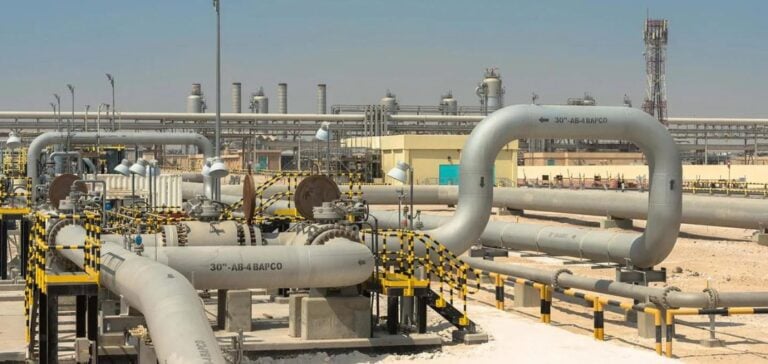BlackRock, through its Diversified Infrastructure Fund, is taking a minority stake in Saudi Bahrain Pipeline Company (SBPC), owner of the pipeline linking Saudi Aramco’s facilities in Saudi Arabia to the Bapco Refining refinery in Bahrain.
This 112-kilometer pipeline is critical to Bahrain’s energy supply.
By taking this position, BlackRock joins a series of strategic moves aimed at securing energy assets in the Middle East, a market renowned for its volatility but also for its long-term return opportunities.
BlackRock’ s acquisition is part of a broader strategy to invest in infrastructure assets offering stable and predictable income streams.
Bahrain, one of the most indebted economies in the region, is looking to monetize its assets to attract foreign capital and diversify its revenue streams. Bapco Energies, operating under Bahrain Petroleum Company (Bapco), retains majority shareholding and governance control of SBPC.
The transaction is part of a wider trend in which Gulf economies are selling stakes in key infrastructure assets to foreign investors to strengthen their finances.
Objective: optimize energy asset management
For Bahrain, BlackRock’s entry represents an opportunity to optimize the management of its energy assets while securing resources for future infrastructure projects.
The country has introduced several reforms in recent years to improve its business environment.
These include the introduction of a minimum 15% tax on the profits of multinational companies from 2025, aimed at boosting tax revenues while attracting foreign investors.
The acquisition of BlackRock is part of this strategy of economic reform.
It reflects a desire to collaborate with leading global players to develop modern, efficient infrastructures tailored to the needs of an economy seeking to diversify beyond dependence on hydrocarbons.
BlackRock and Bapco Energies have also signed a Memorandum of Understanding (MoU) to explore future collaborations on projects in Bahrain, such as renewable energy, electric vehicle charging, carbon capture, energy efficiency, and waste-to-energy.
Similar movements in the Gulf region
This type of investment is not a first for BlackRock in the region. In 2019, the American giant had already taken, with KKR & Co Inc. a 40% stake in an entity that leases Abu Dhabi National Oil Company (ADNOC) pipelines for $4 billion. This public-private partnership (PPP) model is becoming a dominant trend in the region, as Gulf countries seek to attract foreign capital while retaining strategic control over their energy infrastructures. BlackRock’s acquisition also follows the sale earlier this year of KKR and BlackRock’s stake in ADNOC’s pipelines to Abu Dhabi investor Lunate, underlining a dynamic market for infrastructure assets in the region.
Implications for regional energy policy
Saudi Arabia and Bahrain are strengthening their energy ties through these investment moves.
By selling a minority stake to BlackRock, Bahrain benefits not only from an influx of capital but also from the expertise of a leading asset manager.
This could improve the operational efficiency of SBPC and its infrastructure, while ensuring a better allocation of resources to other energy and industrial projects.
For BlackRock, this transaction is part of an investment strategy that combines tangible assets with stable and predictable revenues, while strengthening its portfolio in a region that remains central to the global energy balance.
It also demonstrates confidence in the ability of the Gulf economies to manage complex transitions, particularly in terms of energy policy and investment.
Towards new collaborations and infrastructure projects
As part of this agreement, BlackRock and Bapco Energies have signed a memorandum of understanding to explore future opportunities for collaboration on infrastructure projects in Bahrain.
This prospect paves the way for potential partnerships in the development of new energy infrastructure and other large-scale projects.
These future collaborations could include initiatives to improve energy efficiency, enhance security of supply, or modernize existing facilities.
Although the details of these potential projects have yet to be defined, the MoU demonstrates the growing interest of international investors in the Middle East’s strategic infrastructure, and the willingness of Gulf countries to strengthen their global partnerships to support economic growth.






















